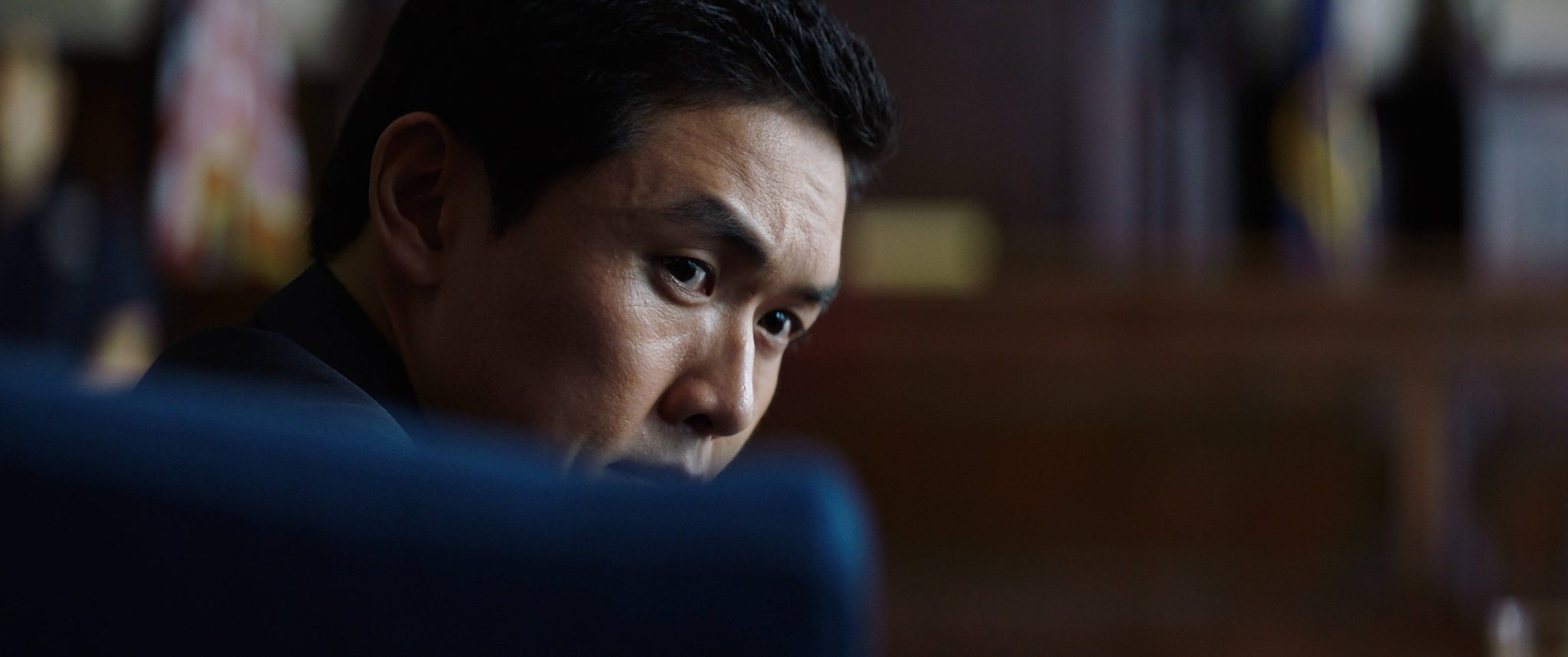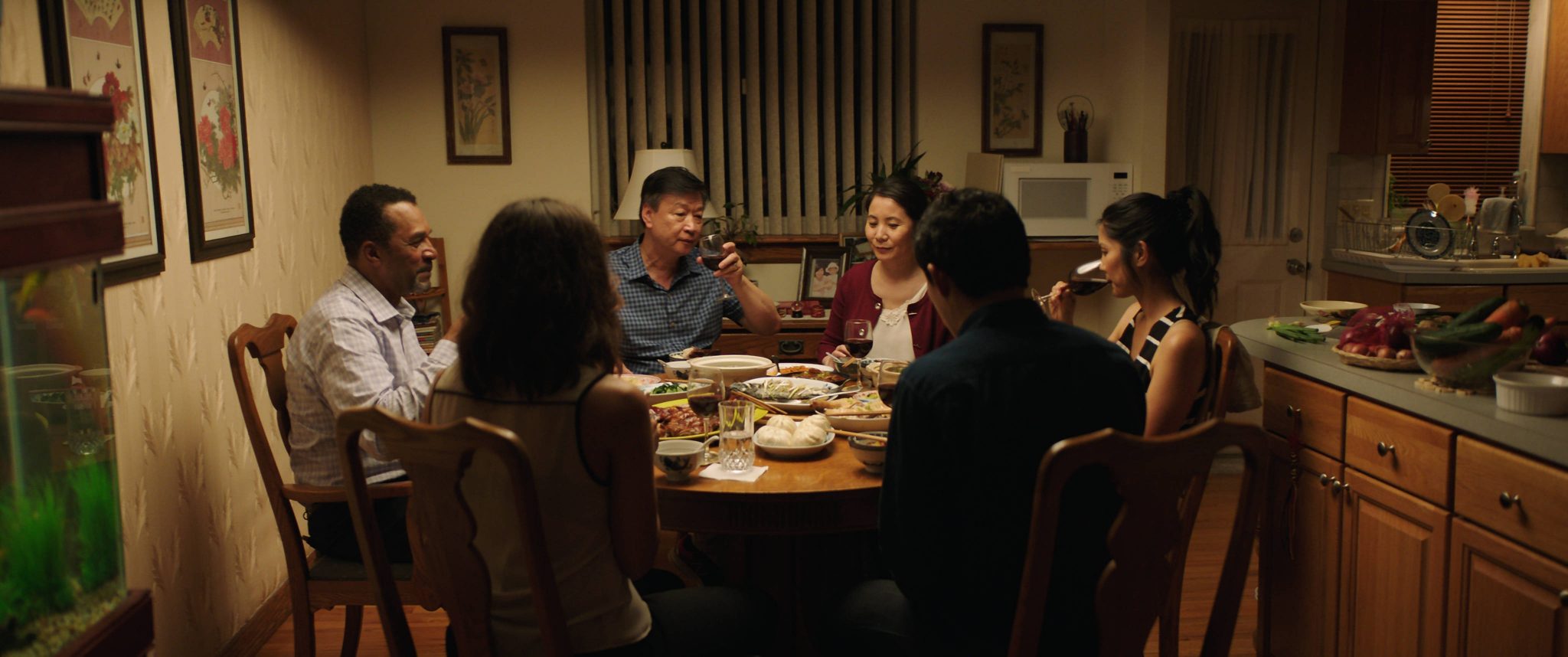When I first read the plot for Aimee Long’s A Shot Through The Wall, I couldn’t help but feel anxious. As much as I looked forward to watching the film, I also couldn’t help but fear the worst. The concept is this: Mike, a Chinese American police officer, accidentally discharges his gun while on the beat, killing a Black man when that bullet goes through a wall.
This obviously harkens back to the tragic shooting of Akai Gurley. Officer Peter Liang’s conviction set off a wave of Asian American protesters who stated that Liang was being used as a scapegoat. A Shot Through The Wall takes this point and shaves away some of the more complicated aspects of Liang’s case for a story that mostly focuses on Mike, his family, and the people in his life.
Going into this film, I was worried about the portrayal of Asian Americans and interracial conflict. There’s no shortage of Asian vs Black rhetoric, most of it developed through the model minority stereotype that was created by those in power to use as a wedge between people of color in the United States. A Shot Through The Wall discusses some of the scapegoating and the role of Asian Americans as historically passive when it comes to politics and social justice movements.

But, to its benefit, that is not where Long lingers. That beast is far too large and complicated to tackle in a narrative drama. Instead Long looks at Mike, his Chinese parents, Mike’s mixed race fiancée, those on the police force, and the public as they turn on Mike after the shooting. There’s no question that what Mike’s done is an accident. He didn’t have any idea who was behind the wall and definitely did not intend to actually discharge his firearm. But the optics of the case is working against him.
A lot of praise has been given to Kenny Leu’s Mike, who manages to make a character we might revile on paper into someone we genuinely empathize for and feel for. As his life unravels, as he tries to balance his case with his personal life, we feel the helplessness that Mike feels. The police union that swore they would protect him has seemingly abandoned him, his partner turns on him, he’s forced to make questionable moral decisions when it comes to publicizing his relationship with his fiancée who is both half Black and also the daughter of a Black police chief.

But further praise should also be given to Fiona Fu’s May Tan, who plays a triggeringly accurate Chinese mother. Loving and doting, May is also exacting, critical, and unrelenting in her scolding. Her relationship with Mike and her husband Chow (played by Chinese dad Tzi Ma) is nuanced and some of her dialogue feels directly plucked out of my life and the life of my fellow friends with Asian parents.
The drawback of focusing so much on Mike’s story is that it never has time to examine the victim of Mike’s shooting. A young man whose mother is suffering an unimaginable pain. The victim of this police shooting, whose story is so rarely focused on, is more of a catalyst for the events that tear Mike’s life apart. Long’s film is succinct, coming in at just 90 minutes, and painfully tragic, but I wish there was just a little more time spent on that aspect for a more balanced tale.
The third act pulls at the heartstrings, with a tragedy that gives the story a sturdy but painful ending. However, in the real world, things rarely end so cleanly, and perhaps lingering in the ambiguity of the future could have lent to a more accurate-to-life ending for this story. Regardless, Long does an impressive job with an immensely difficult subject, anchored by the strength of a nuanced performance from her leading actor Kenny Leu.
This film review is based on a screening from the Los Angeles Asian Pacific Film Festival. Photo Courtesy of Visual Communications.